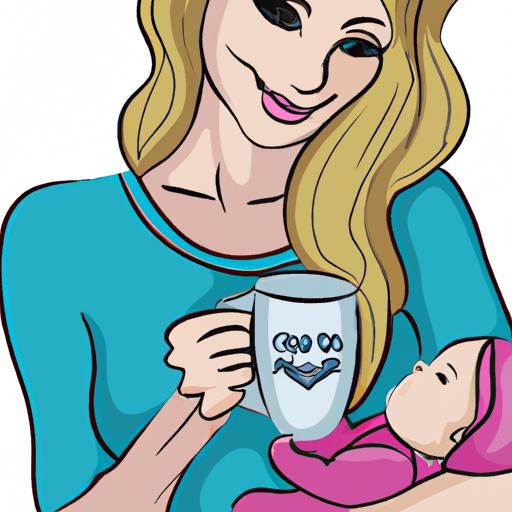As a new mom, it’s vital to be cautious about what you consume, especially if you’re breastfeeding. Coffee, a beloved drink worldwide, contains caffeine that can potentially pass through breast milk and affect your baby’s sleep and behavior. In this article, we’ll explore how much caffeine is safe to consume while breastfeeding and provide tips to monitor your intake effectively.
Understanding Caffeine
Caffeine is a natural stimulant found in various foods and drinks, including coffee, tea, chocolate, and energy drinks. When consumed in moderation, it can improve cognitive function, boost metabolism, and reduce the risk of certain diseases. However, it’s important to note that caffeine can also have negative effects, such as increased heart rate, blood pressure, anxiety, insomnia, and even impact breast milk production.
Click here to get Carb Cycling for Weight Loss at discounted price while it’s still available…
Safe Levels of Caffeine while Breastfeeding
The American Academy of Pediatrics recommends that breastfeeding moms consume no more than 300 milligrams of caffeine per day, which is equivalent to about two to three cups of coffee. However, studies suggest that consuming more than 200 milligrams of caffeine daily may disrupt a baby’s sleep patterns and lead to irritability and fussiness.
It’s worth mentioning that each person’s sensitivity to caffeine varies. While some individuals may tolerate higher amounts, others may experience adverse effects even with smaller doses. Furthermore, it’s essential to remember that caffeine can stay in your system for up to six hours. Therefore, consuming caffeine in the afternoon or evening may impact your baby’s sleep at night.
Monitoring Caffeine Intake
If you’re a breastfeeding mom who enjoys caffeine, there are several ways to monitor your intake and ensure you stay within the recommended limit. One effective method is to keep track of the caffeine content in the food and drinks you consume. You can achieve this by reading labels, maintaining a food diary, or utilizing a caffeine tracking app.
Another approach to reducing caffeine intake is to switch to decaffeinated coffee or tea. Additionally, you can alternate between caffeinated and non-caffeinated beverages like herbal tea or water. It’s important to note that caffeine is not only found in coffee and tea but also in chocolate, soda, and some medications. Therefore, carefully reading labels and avoiding excessive caffeine from various sources is crucial.
The Effects of Excessive Caffeine while Breastfeeding
Consuming too much caffeine while breastfeeding can have negative effects on your baby’s sleep and behavior. Even small amounts of caffeine can accumulate in your baby’s system, potentially leading to sleep disturbances, irritability, and fussiness. Furthermore, consuming high amounts of caffeine can have long-term risks, such as affecting heart rate and blood pressure. It’s important to understand that caffeine sensitivity varies among individuals, so what may be considered a safe amount for one person may not be for another.
Conclusion
In conclusion, caffeine can still be a part of a new mom’s diet, but it’s crucial to monitor intake while breastfeeding. It’s recommended to limit caffeine consumption to less than 300 milligrams per day, approximately two cups of coffee. However, individual sensitivity and breast milk production must also be taken into consideration.
At Marmalade Cafe, we understand the importance of finding a balance between your love for coffee and your baby’s health. By following the recommended guidelines and monitoring your caffeine intake, you can enjoy your favorite drinks while providing your baby with the best possible care.
